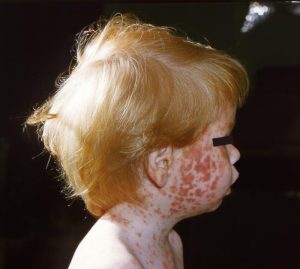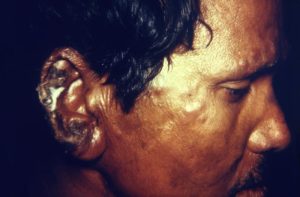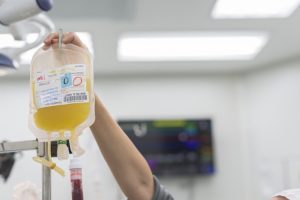Diverse Skills, One Passion – Role of A Dietitian

Written by Yi Chien – Certified Dietitian and Founder of HOMEY
A dietitian is a trained health professional who specializes in food and nutrition based on medical problems. Dietitians apply the science of nutrition and translate it into practical methods to enable people to make appropriate lifestyle and food choices. We work with the healthy and sickly. We spent time assessing the patient’s need and understand their concern. As a dietitian, I counsel patients and customise their dietary plans. We take cost, medical condition and patients’ preferences into account without compromising the nutrients they need. For example, a dietitian will prescribe the appropriate nutritional supplement and diet for patients on dialysis so that they can meet their requirements while limiting fluid intake.
Other than patients in the ward or clinic, dietitians see those in intensive care units. We recommend appropriate tube feeding plans or nutrition supply through veins. We work with other health care professionals to provide the best care for patients.
Besides patients, we care for the community too. We promote better nutrition by speaking to groups about diet, nutrition, and the relationship between good eating habits and preventing or managing specific diseases. We always keep up with the latest nutritional science research and provide evidence-based information to debunk myths. I spend time on increasing awareness by hosting various corporate wellness programs in companies.
There are several specialties within the occupations. The following are examples of the types of dietitians:
Clinical dietitians provides medical nutrition therapy. They contribute their clinical knowledge in hospitals, long-term care facilities, clinics, private practice, and other institutions. They will assess the nutritional status of patients and identify nutritional problems in a clinical setting. From the assessment, the dietitian develops diet plans and counsel patients on special diet modifications. They also develop nutritional programs based on the patient’s health needs and counsel patients on how to lead a healthier lifestyle. Clinical dietitians may further specialize, such as working only with paediatric patients, renal patients, ICU patients etc.
Community dietitians develop programs and counsel the public on topics related to food and nutrition. Assessing, promoting, protecting, and enhancing the health of the general public in a community setting and providing strategies for the prevention of nutrition-related diseases are some of their roles. They often work with specific groups of people, such as adolescents or the elderly. They work in public health clinics, government and nonprofit agencies, health maintenance organizations (HMOs), and other settings.
Foodservice dietitians plan meal programs. They work in food service settings such as hospitals, cafeterias and schools. They are also responsible for managing cost-effective food production operations, distributing therapeutic (disease-specific) meals, and monitoring sanitation and safety standards in a food service setting. Apart from that, purchasing of wet and dry ingredients, quality checking, proper storage of ingredients, meal preparation and meal accuracy will be also monitored by foodservice dietitian. Foodservice dietitians may oversee kitchen staff or other dietitians too.
Administrative Dietitians work in foodservice facilities that provide food to large organizations; such as hospitals, school/university cafeterias, or other businesses. Foodservice companies will hire dietitians to develop menus, work with the sales team, develop nutrition policies for schools, order products for specific clients, oversee/manage kitchens, and complete other managerial tasks such as staffing.
Consulting Dietitians work in private practice providing counselling and expertise on healthy eating and disease prevention to individuals or small groups. They work with individuals, groups, workplaces and media to promote health and provide dietary advice for healthy living. Other than that, they also work with food and pharmaceutical companies to provide research, develop products, educate consumers, and promote and market better nutritional products in a business setting.
Research Dietitians work on various research projects to enhance patient care, create new, healthy foods, and improve the cost-effectiveness of the foodservice industry. Research dietitians can also work at the university level in teaching positions.
Sports Dietitians help athletes to make the right food choices by providing nutrition information based on scientific principles and sports performance. Sports dietitians provide advice to individual athletes or entire sports teams on issues such as maximizing energy levels, eating to optimize growth and development, recovery food, eating before the competition, and staying hydrated. There are certification/diploma programs specially designed for dietitians to become experts in sports nutrition.
The opinions expressed in the article are the writer’s own and do not reflect the view of MPS YPC.

Yi Chien is a certified dietitian who is very passionate about sharing evidence-based nutrition knowledge and guiding people in leading a healthy lifestyle. Helping terminally ill patients who suffer from severe complications due to chronic diseases has inspired her to move from the hospital in order to bridge the gap between healthcare providers, patients and community.
Her strong vision in empowering life-improving dietary changes led her to showcase HOMEY Digital Diet Prescription in Malaysian Dietitians’ Association Conference which championed the international startup pitch – Creatif Pitch and founded Penang biggest fat loss challenge – For Leaner Penang. She strongly believes that by empowering each individual with the correct nutritional information, it can have a ripple effect on the health, economy and future of a country.













